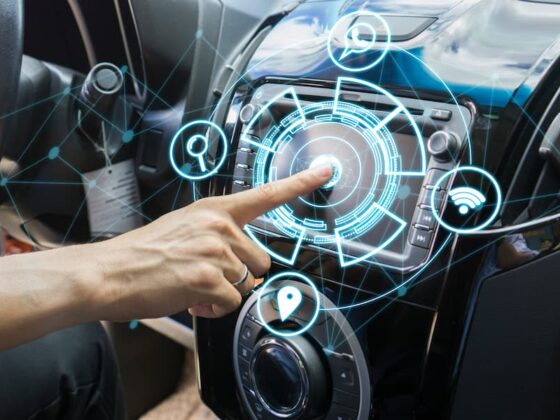Notarizations are usually carried out in person. Given the current health guidelines and concerns this has proven difficult. To practice social distancing or simply because of government laws, a person may be unable or unwilling to carry out a notarization in person due to COVID-19.
Countries, such as the US, the UK and within Continental Europe, have brought in measures to carry out online notaries.
Hong Kong has yet to adopt such changes, but could the implementation of these practices have long-term advantages on the efficiency and effectiveness of the legal industry? Maybe it is time to consider the potential benefits.
Notarization procedures
For a document to be effectively notarized, the Notary Public will have to verify the persons identity using an official form of identification, such as a HKID or a passport.
They will also have to be satisfied that the person signing the document knows what they are doing and has mental capacity. Mental capacity has already been explored in our article “Managing Property and Affairs of the Mentally Incapacitated” but please note that the requirements for proving mental capacity are not the same. From a notarial perspective, mental capacity is met according to the Notary Public’s personal assessment (they will ask competency questions or check the persons understanding of the document).
If a legal document is being verified in a foreign jurisdiction, it may need to be apostilled. This is a procedure whereby the Hong Kong Courts verify the signature of the Notary Public.
The Notary Public might require more information. This could involve certifying that a document is a true copy, carrying out company searches and/or conducting further research into the particular matter.
How are other jurisdictions coping with the notarization problem, during the pandemic?
In the US, a recent Bill has been put forward to pass the Securing and Enabling Commerce Using Remote and Electronic Notarization Act of 2020 (S.3533). This Act would establish new minimum standards for electronic and remote notarizations. If it were to become law, it would authorize every Notary Public in the US to perform remote online notarizations (“RON“). There are already some states who are practicing such measures.
In Continental Europe, in general, Notaries Public are often used to witness Wills, they are now able to do this online. In France, most notarizations can be done digitally and in Italy some legal procedures involving witnessing and signing can now be done by videoing conferencing and digital signatures.
How can eNotarization be done?
Documents can be transmitted using fax or electronic means and signatures, can be digitally inputted using programs (such as Acrobat DC, Adobe Sign, HelloSign, OneSpan, Namirial and DocuSign) and witnessed through online video conferencing programs.
RON can be carried out using online digital programs such as GlobalSign, a globally recognized Certificate Authority, which issues trusted cryptographic-based digital certificates, that can be used by Notaries Public to apply digital signatures, meet electronic document transmission requirements and provide storage facilities for eNotarization.
How could RON be implemented in Hong Kong?
Hong Kong seems to have lagged in this area. Of course, the current outbreak has been significantly more controlled and the pressing need for such practices is lesser than other jurisdictions who have brought them in.
But this could go beyond simply tackling the issues posed by COVID-19. It is surely desirable to adopt modern and up-to-date approaches to notarization, to help ease the process by saving time and improving efficiency.
According to section 73D the Legal Practitioners Ordinance (Cap. 159), the Council of Society of Notaries has the power to make rules regarding “the professional practice, conduct and discipline of notaries public and their employees”. It seems The Council of Hong Kong Society of Notaries could allow for RON notarizations and provide detailed practice directions outlining how to carry out eNotarizations.
Why implement eNotarization?
What lies ahead is unknown and in-person notaries could become increasingly more difficult to carry out, especially with the uncertainties relating to COVID-19. If anything, this pandemic has taught us that pre-emptive rather than reactive action is much more impactful. Hong Kong would benefit from the implementation of RON practices to help mitigate future complications to notarizations.
In other jurisdictions probate documents, land searches and registration of deeds have been digitally operational already. The pandemic has just required some further adjustments to practices already in place.
Ensuring that the formalities required for notarizations are being applied may present problems, but Hong Kong has the benefit of being able to see how other jurisdictions have managed to implement eNotarization and can pick the best of the bunch.
The wider picture
The digital revolution has brought about globalised competition, 24/7 response expectations, more informed customers, greater brand reach, and distance is no longer an obstacle to delivery of services.
In Hong Kong, some legal practice areas are adapting and adding digital processes to their operations. Increasingly owners and operations managers are non-lawyers, approaches to branding, marketing and selling are changing. Overall, business acumen and digital adoption have become essential for law firms to compete. The emphasis on these areas will only increase going forward.
COVID-19 has led to new technology implementations into legal areas, such as Online Dispute Resolutions and Remote Hearings, but are these enough? Indeed, further implementations of digital technologies into the judicial processes could improve client outcomes, increase lawyers’ productivity and reduce costs for all. It would also allow Hong Kong’s legal industry to operate more effectively in the new globalised environment.
Perhaps it is time to modernize some of our legal processes and start adopting these tried and tested technologies, with the intention of retaining them on lasting basis. As we have already highlighted in our previous articles “Hong Kong Announces Its New Online Dispute Resolution Scheme” and “Remote Hearings for Civil Proceedings: How Will The Embrace of Technology Affect Hong Kong’s Legal System”, some improvements have been made but questions remain, as to whether these will be permanently implemented.
If you would like to understand more on legal implications connected to technology and/or specific notarial issues, you can contact Hugill & Ip.
This article is for information purposes only. Its contents do not constitute legal advice and readers should not regard this article as a substitute for detailed advice in individual instances.




